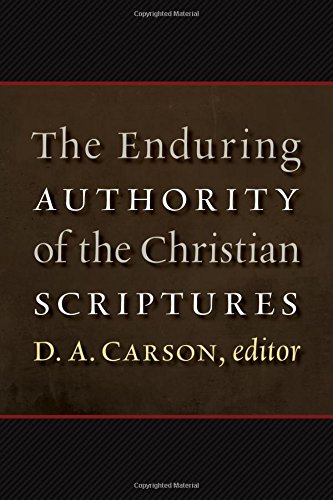A Brief Book Summary from Books At a Glance
Editor’s Note: Today we continue our series of “bonus” summaries covering all thirty-six chapters of the monumental volume, The Enduring Authority of the Christian Scriptures (D.A. Carson, ed.).
Chapter 17: “God and the Scripture Writers: The Question of Double Authorship”
by Henri A.G. Blocher
(Summarized by Timothy Kleiser)
Henri Blocher observes in some theologians (James Barr, Paul Ricoeur, Kevin Vanhoozer, and Anthony Thiselton) a growing concern that “the traditional doctrine [of the word of God as divine discourse] has granted undue prominence to one biblical genre or kind of communicative action: the prophetic one.” In their view, “This mistreatment flattened out scriptural diversity. As a result, human agency has not received its fair share.” While Blocher stands in agreement with the traditional prophetic model of biblical inspiration, he shares with these theologians a concern for a potential loss of scriptural diversity. Therefore, he writes this chapter with the aim of defending the traditional prophetic model while nuancing it in a way that respects scripture’s diverse provenance.
Blocher first mounts a defense of the prophetic model of biblical inspiration. Whereas many people think of the prophet as a mere passive instrument, Blocher argues that “the disqualification of human faculties is no essential part of the biblical idea of prophecy” and that the biblical category of prophecy does indeed imply double agency. Yet double agency in biblical inspiration does not necessarily entail a separation between the divine and human meaning. Blocher favors what he calls an “identity of meaning” because it best accounts for the textual evidence and it safeguards against the inherent danger of espousing a “non-identity of meaning”: “If God’s meaning can be different from the meaning of the human writers, we cannot be sure about God’s meaning anywhere!” He concludes that “one finds no solid ground for a disjunction between divine and human meaning in true prophecy.”
He finds support for his position in the history of. . .
[To continue reading this summary, please see below....]The remainder of this article is premium content. Become a member to continue reading.
Already have an account? Sign In
